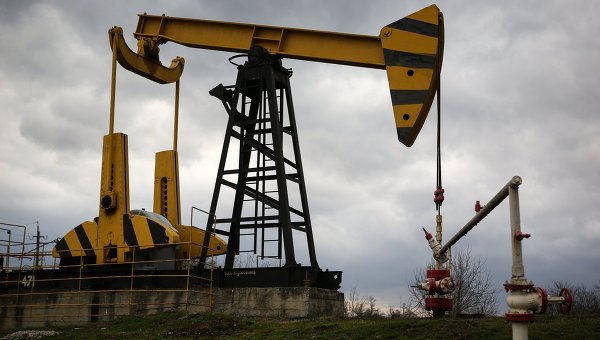Baku, Azerbaijan, April 21
By Dalga Khatinoglu- Trend:
Iran has a capacity to increase oil production to even 5.5-6 million barrels per day (mb/d), but not under the current situations, Fereydoun Barkeshli, former general manager at National Iranian Oil Company (NIOC) in OPEC and international affairs, told Trend April 21.
Iran's oil output plunged by more than one million barrels to 2.8 mb/d during a 3-year sanctions, imposed by western countries in 2012. Iran had to shut down some fields, but resumed the output to around 3.3 mb/d in March, three months after lifting sanctions.
Tehran says it would increase this figure to the pre-sanctions level, but most of international organization, including the Energy Information Administration believes that the country can add only around 0.5 mb/d to its output in 2016 due to the delays in developing new fields and technical problems for resuming output from old fields.
About 80 percent of Iran's active fields are in their second half-life and their production decrease by 8-13 percent annually.
For now Iran re-injects about 93 million cubic meters per day (mcm/d) to maintain the output level, but the figure should have been three times more than this level.
Barkeshli says that Iran needs a lot of gas injection to brown fields (active oil fields). "Currently oil and gas must move hand in hand in order to make raising crude oil production more sustainable and meaningful".
Global oil glut and Iran's return
For now, Iran has increased oil exports by 750,000 b/d to 1.7 mb/d since January mostly thanking to the 30-50 million barrels of stored oil on water, but the figure is more much than the production growth. Keeping exports sustainable incoming months or increasing that to the pre-sanctions level (2.2mb/d) is not possible with the current output.
The global markets experienced a 1.5mb/d of glut in 2015, pushed the prices down. For the end of 2016, the figure is expected to decrease significantly, but the prices is still 2.5 times less than 1H14 and the estimations put the oil prices at around $50/barrel for late 2016, still so much below 1Q16, when the price was about $108.
OPEC and some non-OPEC producers in Doha failed to reach an agreement on April 17 to freeze the production level, aimed to support the prices, allegedly due to Iran's refuse to join the freezing campaign.
Barkeshli says within OPEC, the allocated quota is a kind of sovereign right and every member does all it can to keep its country quota high.
"Iran claims the right to nearly 4 mb/d of production since 1996. Every Iranian oil minister since early 1980's has pledged 5-5.50 mb/d output, but never achieved the desired figure".
"It is true that Iran's oil production faces a gradual aging depletion rate of 300-350 thousands per year. As such in fact additional barrels have been there but just enough to compensate the natural declining rate of production. Therefore, maintaining the current figures is by itself a success".
He said that his 35-year experience in oil and gas industry, believes firmly that Iran has the potential to produce 5.5 -6 mb/d but not under current situations. "We need investment, international support and technology , education, internationalization and easy access to world oil market".
He added that oil and gas business is highly international, better to say internationalized. "Iran started its revolution with one of the most devastating wars of recent times with Saddam Hussein (Iran-Iraq's 8-year war in 1980s). Then there was a short pause and sanctions were imposed one after the other. Iran was deprived from investments, technology, know-how and sophisticated manpower besides domestic policies of adopting right legal policies were all serious hindrances".
Barkeshli says that Iran needs peace. "We need friendly relationship with regional countries and neighbors including the Persian Gulf Cooperation Council, Economic Cooperation Organization, Shanghai Cooperation Organization. Different regional energy common markets and pacts with friendly nations in the Middle East and Persian Gulf. We must change out concept from war and hostility aspects to peace, friendship and common markets, single monetary policy, common tariff policy objective, what the European Union achieved more the 70 decades ago".






